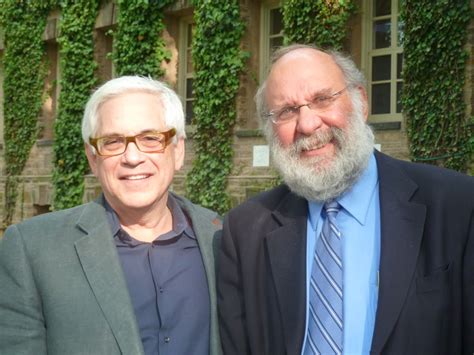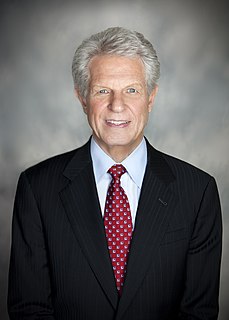A Quote by Robert Cialdini
A well-known principle of human behavior says that when we ask someone to do us a favor we will be more successful if we provide a reason. People simply like to have reasons for what they do.
Related Quotes
My view is that friendship permeates human life and is involved in almost everything we think, feel, and do. For that very reason, there is no behavior that is characteristic of friendship. Two people can engage in the very same behavior - visiting someone in hospital, for example - and yet only one of them might be doing so out of friendship; moreover, friends can be doing absolutely anything together, even quarrel or fight. That means that it is difficult, if not impossible, to recognize a friendship simply on the basis of what people do.
The characteristic human trait is not awareness but conformity, and the characteristic result is religious warfare. Other animals fight for territory or food; but, uniquely in the animal kingdom, human beings fight for their 'beliefs.' The reason is that beliefs guide behavior, which has evolutionary importance among human beings. But at a time when our behavior may well lead us to extinction, I see no reason to assume we have any awareness at all. We are stubborn, self-destructive conformists. Any other view of our species is just a self-congratulatory delusion.
Barack Obama's said some very nice things and he says them well. But if you ask me, the reason that we're looking at somebody who is such an inexperienced senator, who has said some very pleasant but not especially sterling or innovative things, the reason that he's considered such a big deal is simply because he's black.
When a really new product comes along, it's almost always a mistake to hang a well-known name on it. The reason is obvious. A well-known name got well-known because it stood for something. It occupies a position in the prospect's mind. A really well-known name sits on the top rung of a sharply defined ladder. The new product, if it's going to be successful, is going to require a new name. New ladder, new name. It's as simple as that.
I’d ask you to hang out with us, but you’re not supposed to see me this way.’… ‘What way?’ I ask. ‘Drunk?’ ‘Yeah…well, no.’ His voice softens. ‘Real, I guess.’ ‘I’ll pretend I didn’t.’ ‘Nice of you.’ He puts his lips next to my ear and says, ‘You look good, Tris.’… I laugh. ‘Do me a favor and stay away from the chasm, okay?’ ‘Of course.’ He winks at me.
Boxing distills and illuminates the essence of an athlete. There's nowhere to hide. Boxers live and perform at the extremes. They provide us with answers about a given contest, but more important, they ask us fundamental questions about human narratives. What does this person really stand for? How far will he go to defend it?
I think knowing you're not alone is important. This generation is already better at standing up for themselves, saying, "No! You're not going to treat me like that. My standards are higher." But we can provide more education through stories. Just because someone who is older or with more authority says you have to do something, there's no reason you need to. One good thing is that there are new rules about how old you can be on set - more regulations. I think those are good.
There's a stronger and more kind of controversial element of Plotinus' view of matter, which is that he actually identifies it with evil, or at least the principle of evil, and the reason for this is that he thinks that the the One, the highest principle, can also be thought of as the Good, and that's kind of surprising like, because he has this negative theology which doesn't allow us to say anything about the One. But he believes that it can be seen as the principle of goodness as well as unity, and that if you think about it, goodness and unity sort of go along with each other.


































